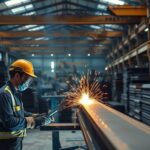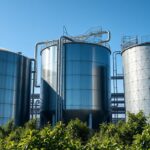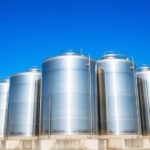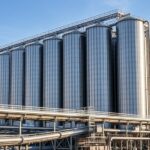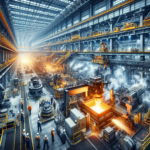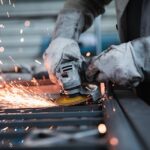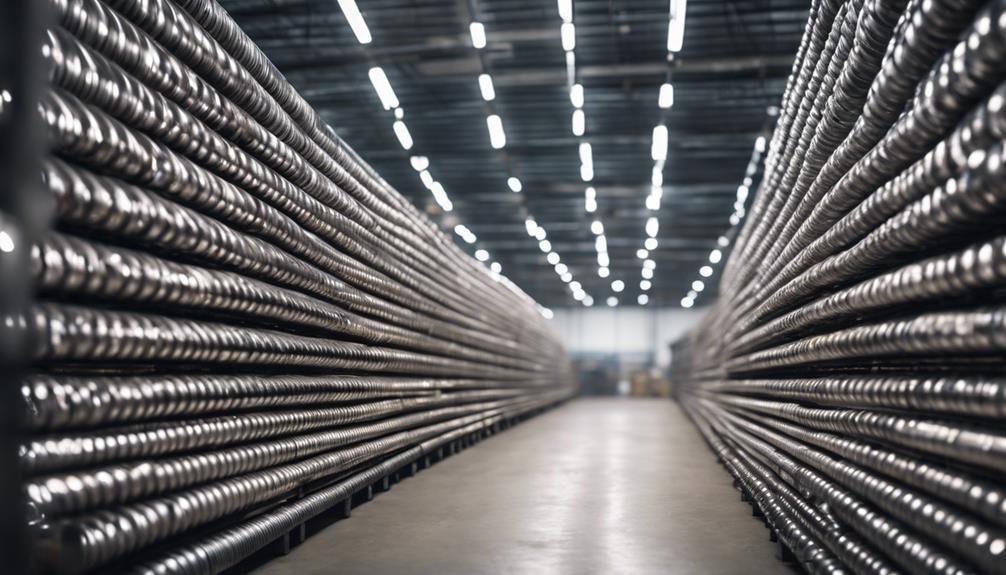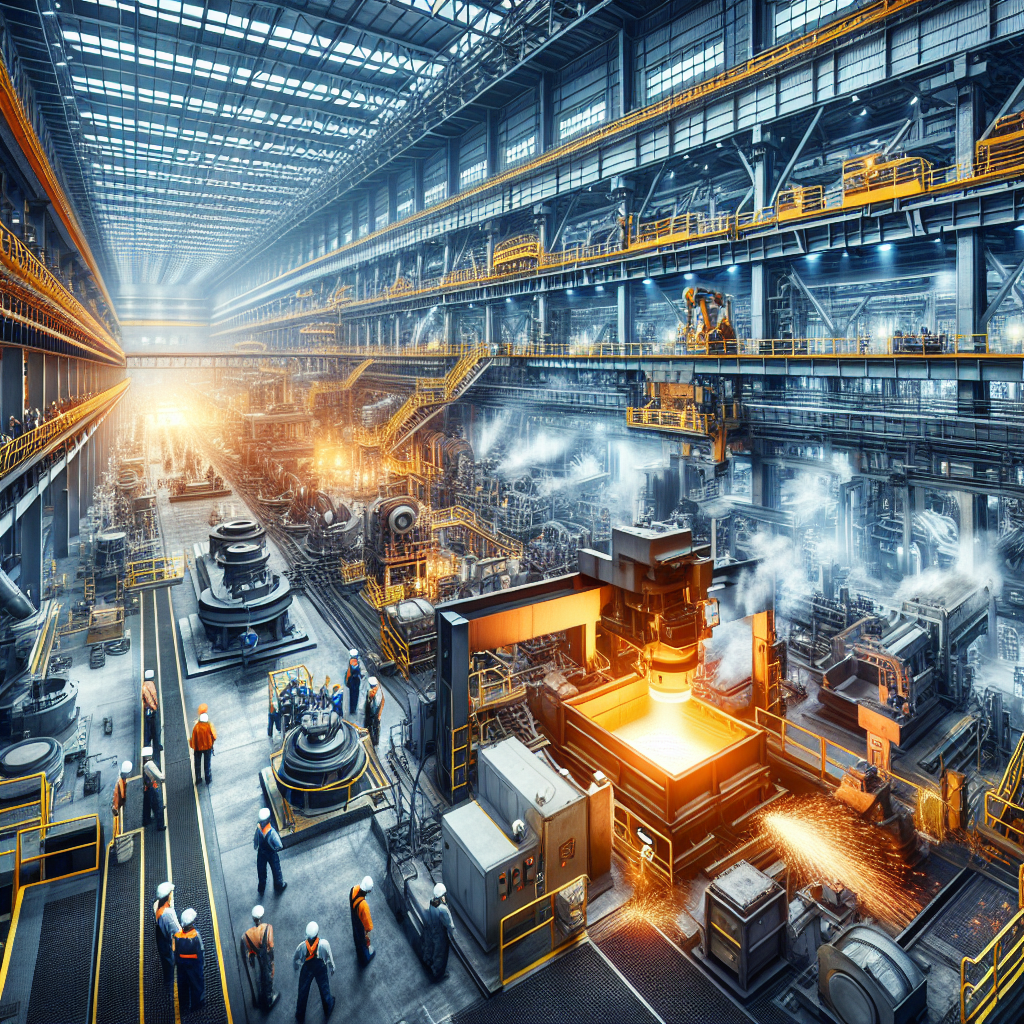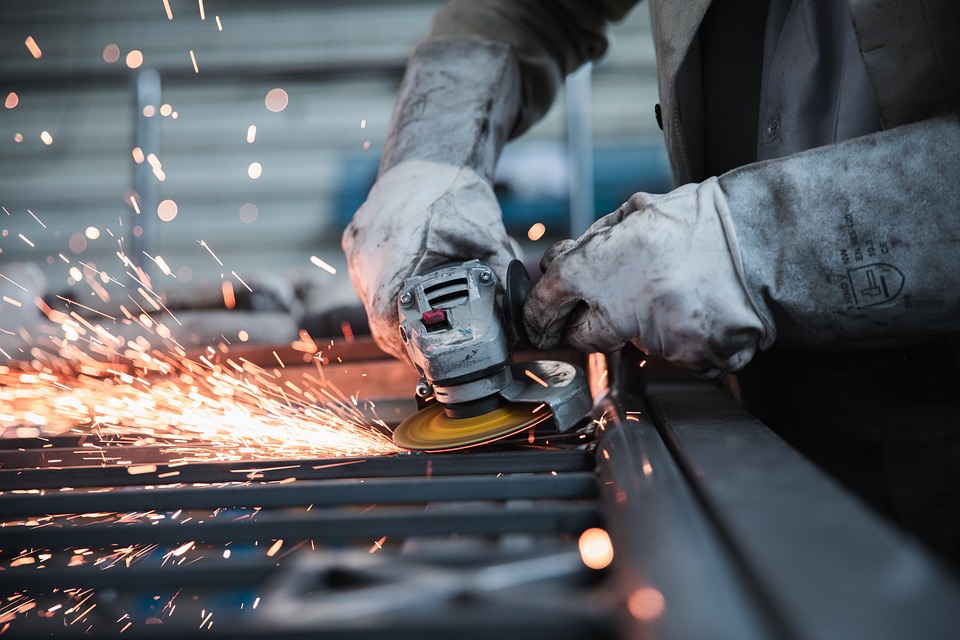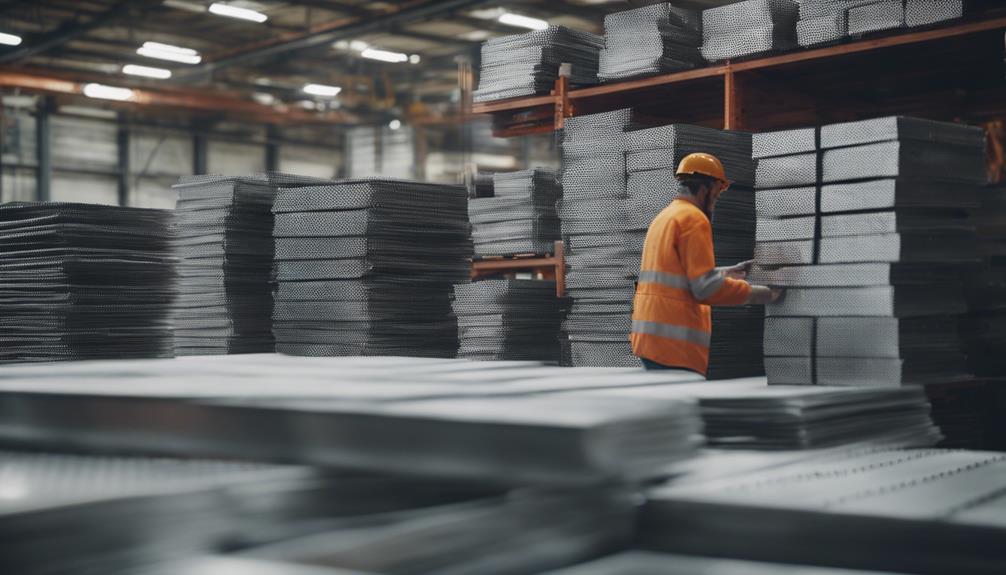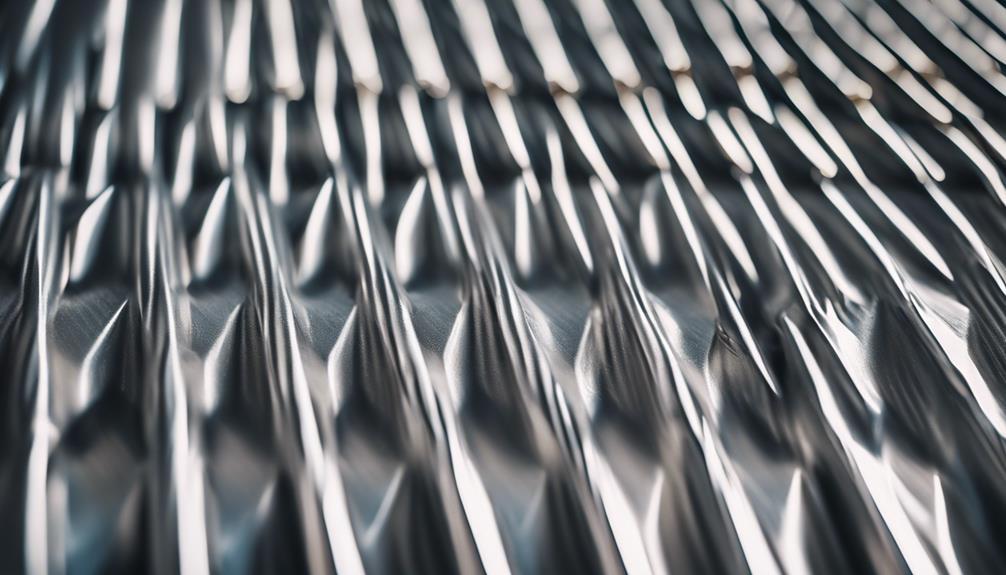Steel coils are crucial for manufacturing processes, with significant importance in the construction and automotive industries. Available in versatile types like HR, CR, GI, and PC, these coils come in various grades such as S235JR, S275JR, and Q235B, offering different properties for specific applications. Galvanized coils, used in roofing for protection, are just one example of the many functionalities of steel coils in different sectors. The manufacturing process involves advanced technology and precision engineering, ensuring that the coils meet industry standards for performance and durability. Explore further to uncover the diverse applications, mechanical properties, key industry players, and sustainability practices related to steel coils.
Key Takeaways
- Steel coils essential in construction and automotive industries.
- Various types like HR, CR, GI, PC cater to diverse needs.
- Galvanized coils with zinc coating for enhanced protection.
- Different grades such as S235JR, S275JR, Q235B available.
- Advanced manufacturing processes ensure durability and reliability.
Importance of Steel Coils
Steel coils are essential components in the manufacturing processes of various industries, playing crucial roles in the production of a wide range of necessary products. Industries like construction and automotive depend heavily on steel coils for creating pipes, tanks, frames, and different vehicle parts. The versatility of steel coils is evident in the different types available, including hot-rolled (HR), cold-rolled (CR), galvanized (GI), and polymer-coated (PC), tailored to suit specific applications. For example, galvanized steel coils, with zinc coatings, are mainly used in roofing applications to protect the underlying steel. Additionally, steel coils come in various grades such as S235JR, S275JR, and Q235B, each with specific thickness and width ranges, ensuring they meet effectively diverse industry requirements.
Manufacturing Process Overview
Utilizing advanced technology and precision engineering, the manufacturing process of steel coils undergoes a meticulous series of steps to guarantee quality and consistency in the final product. Steel coils are primarily produced through a continuous rolling process at high temperatures in hot strip mills. Additionally, compact strip production methods are employed to fabricate coils according to specific thickness and width requirements. Various coatings, such as zinc coating for galvanized coils, are applied to enhance the performance of the steel in different applications. Steel coil grades like S235JR, S275JR, and Q345B find extensive usage in construction, automotive, and industrial sectors. HR coils, known for their durability and strength, are commonly utilized in the production of pipes, tanks, frames, and vehicle parts.
Versatile Applications in Industries
With their diverse range of applications spanning multiple industries, steel coils play a pivotal role in supporting various manufacturing processes and product development endeavors. Steel coils are widely utilized in the construction and automobile sectors for creating essential components such as pipes, tanks, frames, and vehicle parts. Galvanized steel coils, known for their protective zinc coating, are specifically favored in roofing applications. Different grades of steel coils like S235JR, S275JR, SGCC, and DX51D cater to a variety of industrial needs, providing strength and durability. These coils are available in different thicknesses ranging from 1.0mm to 25mm and widths from 600mm to 2000mm, ensuring they can meet diverse project requirements. Overall, steel coils are indispensable in manufacturing processes, offering versatility and reliability across industries.
Diverse Widths and Thickness Options
Having addressed the versatile applications of steel coils in various industries, the discussion now shifts towards the diversity in widths and thickness options available for these essential components. Steel coils come in widths ranging from 600mm to 2069mm, catering to a wide range of industry needs. The thickness options for steel coils vary from 0.30mm to 4.00mm, offering flexibility for different applications. Manufacturers provide different steel grades and specifications based on performance, feasibility, and economic factors, guaranteeing that customers can choose the most suitable option for their specific requirements. Cold rolled coils, derived from hot rolled coils through pickling and cold reduction in a Cold Mill, offer guaranteed mechanical properties and specific chemical compositions to ensure peak performance in various industrial processes.
Mechanical Properties and Chemical Compositions
The evaluation of steel coils' mechanical properties and chemical compositions is paramount in determining their suitability for specific industrial applications. Mechanical properties such as tensile strength, yield strength, elongation, and hardness play a vital role in evaluating the performance of steel coils under different stresses. On the other hand, the chemical compositions of steel coils, which commonly include elements like carbon, manganese, silicon, sulfur, and phosphorus, greatly influence their corrosion resistance, weldability, and overall characteristics. Manufacturers and end-users select steel coils with specific mechanical properties and chemical compositions based on the requirements of the intended applications. Understanding these key characteristics is essential for ensuring the best performance and durability of steel coils in various manufacturing processes.
Key Players in the Steel Coil Industry
Prominent figures in the steel coil industry play pivotal roles in supplying high-quality steel products to meet the diverse needs of various sectors. In the UAE, DBMSC Steel FZCO, Dana Steel Processing Industry LLC, Unimet FZE, and Amat Steel Product Trading LLC stand out as key players offering a wide range of steel products and services. Clever Metal Industries LLC is renowned for manufacturing steel coils and specializing in producing ERW pipes and tubes. Steel coils sourced from different origins and mills are essential in industries such as automotive, construction, and appliances due to their specific properties. Cold rolled coils undergo processes like pickling and cold reduction to create steel with low ductility tailored for specific applications.
Quality Standards and Certifications
In the competitive steel coil industry, ensuring compliance with quality standards and certifications is essential for maintaining a reputable position in the market. Quality standards such as the ISO 9001 certification play a significant role in guaranteeing consistent quality control processes throughout the production of steel coils. Certifications like ASTM (American Society for Testing and Materials) are indispensable to ensure adherence to specific technical standards, while compliance with EN (European Norm) standards is critical for ensuring product quality and performance. Additionally, quality certifications like JIS (Japanese Industrial Standards) are necessary for meeting industry-specific requirements, and adherence to DIN (Deutsches Institut für Normung) standards ensures compatibility with German quality norms. Adhering to these standards and certifications is crucial for upholding quality and meeting customer expectations.
Sustainability Practices in Steel Coil Production
Enhancing sustainability in steel coil production involves incorporating recycled materials, implementing energy-efficient technologies, and optimizing waste management strategies. By using recycled steel materials, the manufacturing process can reduce the demand for raw resources and decrease energy consumption. Implementing energy-efficient technologies helps lower the carbon footprint associated with steel coil production, contributing to environmental preservation. Proper waste management strategies are essential to minimize the impact of manufacturing activities on the environment. Investing in research and development for innovative sustainable practices can further enhance the eco-friendliness of steel coil production. Collaboration with suppliers and partners committed to sustainability also plays a vital role in promoting greener practices within the steel industry.
Frequently Asked Questions
What Is Steel Coils Used For?
Steel coils serve diverse purposes across industries due to their versatility and durability. They find applications in construction for various structures, in roofing for protection, and in automobiles for components, showcasing their crucial role in manufacturing.
What Is a Coiled Steel?
Coiled steel refers to steel that has been wound into a coil shape post the rolling process. This configuration enhances handling efficiency and allows for better storage and transportation of the material, making it a practical choice for various industries.
What Is a Metal Coil?
A metal coil is a cylindrical product formed by winding metal after rolling. It can be hot-rolled, cold-rolled, galvanized, or polymer-coated based on the manufacturing process. Metal coils find applications in various industries due to their versatility.
How Many Types of Steel Coils Are There?
There are several types of steel coils based on their manufacturing process and application. These include hot-rolled coils for structural components, cold-rolled coils for precision engineering, galvanized coils for corrosion resistance, and polymer-coated coils for added protection and aesthetics.
